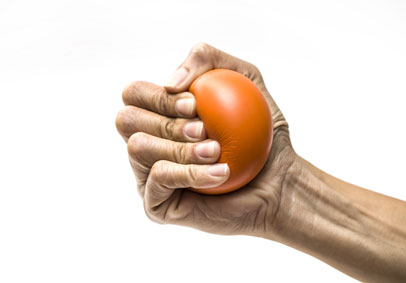When you’re under stress—a common occurrence among Warfighters—your body has two important natural responses: The stress response helps keep you safe from perceived threats, and the relaxation response helps you calm down. By understanding what happens to your body under stress, you can learn to control the stress response and engage the relaxation response, helping you achieve optimal performance.
The stress response, also called the “fight-or-flight response,” helps keep you safe from danger. When you perceive a threat, your body automatically responds by going through a rapid sequence of changes to increase your chance of survival.
- Your body releases the stress hormones adrenaline (epinephrine and norepinephrine) and cortisol, which act as messengers that signal the rest of your body to prepare for danger.
- Energy sources (glucose, amino acids, and fatty acids) rapidly mobilize from where they’re stored to critical muscles. This helps prime your body for action and keeps your brain alert for quick reactions.
- Your heart rate, blood pressure, and breathing increase to speed the transport of nutrients and oxygen to your muscles and brain (to help protect your body as much as possible). At the same time, energy normally used for longer-term processes—such as growth, digestion, and reproduction—is diverted to more immediate needs.
- Your muscles tense to provide your body with extra speed and strength, your pupils dilate to sharpen your vision, and perspiration increases to prevent overheating from your increased metabolic rate.
- Your immune function also gets a short boost of energy in anticipation of possible injury and infection.
While your fight-or-flight response is a valuable and useful reaction when activated for short periods of time, if it’s called on too often or turned on for too long, it can cause a variety of negative mental and physical effects that can lead to disease and premature aging. Stress over time also can suppress some types of immune function—leaving you more open to infection—and can overactivate other immune responses, such as inflammation. The good news is, your body has another natural mechanism, the relaxation response, to help counter the negative effects of stress.
 Reinterpret stress to enhance your well-being... Find Out More
Reinterpret stress to enhance your well-being... Find Out More
The relaxation response has the opposite effect of stress on your mind and body.
- Physically, it reduces heart, breathing, and metabolic rates, as well as blood pressure and muscle tension.
- Mentally, it reduces your anxiety and increases your feelings of positive mood, calmness, and well-being. The relaxation response also can protect against anxiety and depression, hypertension, cardiovascular disease, and cancers made worse by stress, including metastatic breast cancer, colorectal cancer, and lung cancer.
The relaxation response actually changes your body at the molecular level. It can affect which of your genes are “activated,” impacting how your cells function. For example, the relaxation response can help turn ON certain genes that allow your body to use energy more efficiently—reducing cellular aging. The relaxation response also can turn OFF other genes that lead to inflammation and stress.
There are various mind-body techniques you can use to help put your mind and body at ease, including deep-breathing exercises, guided imagery, meditation, progressive muscle relaxation, yoga, and qigong. The effects of using such techniques to ignite your relaxation response get stronger with practice: Just two 10- to 20-minute sessions a day can help prevent or reverse the negative physical effects of chronic mental stress. Long-term practice of mind-body methods that engage the relaxation response have been proven to reduce mental distress and levels of stress hormones in your body.
Bottom line
Your environment and your own behavior can positively influence your relaxation response—all the way down to the gene level—and protect you against the effects of stress. You can learn to turn on your body’s relaxation response, an important and powerful opponent to stress, adding its many positive mental and physical effects to your Total Force Fitness arsenal.
